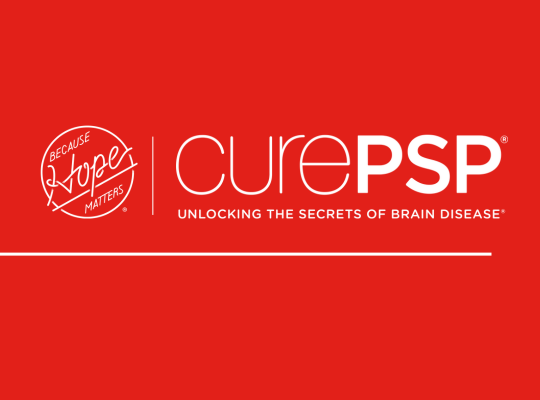What Causes Rare Neurodegenerative Diseases? Exploring the Genetics of PSP, CBD and MSA
Jun 11, 2025
The Rare Side of Neurodegenerative Diseases
If asked to name a neurodegenerative disease, most people would say Parkinson’s disease, Alzheimer’s disease or ALS. However, many other neurodegenerative conditions are less well-known but just as important. These diseases are typically considered rare, affecting fewer than 200,000 people in the U.S.
Progressive supranuclear palsy (PSP), corticobasal degeneration (CBD) and multiple system atrophy (MSA) are examples of rare neurodegenerative diseases that many people have not heard of until they or someone they know is diagnosed. These conditions are called “atypical parkinsonism disorders” because many of the symptoms are quite similar to Parkinson’s disease, but each has notable differences.
In fact, many people living with PSP, CBD and MSA are often misdiagnosed with Parkinson’s disease. People with these conditions may have tremors, stiffness, slowness and balance issues like people with Parkinson’s disease. But they also have atypical symptoms, such as:
- PSP might cause vision problems or unexplained falls.
- CBD often presents with uneven motor symptoms.
- MSA impacts movement, balance and autonomic functions, such as blood pressure regulation, bladder control and heart rate.
Recognizing these unique differences is essential for an accurate diagnosis and treatment. Each patient requires a tailored approach to manage their symptoms, slow the disease and improve quality of life.
How Many People Have PSP, CBD and MSA in the U.S.?
We don’t know the exact number of people living with these diseases because many people go undiagnosed. Here is a snapshot of the estimated number of people in the U.S. who are affected:
- PSP: About 30,000-40,000 people
- CBD: Around 2,000-3,000 people, but only 500-700 are diagnosed
- MSA: About 13,000 people
The Cause of Rare Neurodegenerative Diseases
The most common question when a person is diagnosed with one of these diseases is: What caused this?
Unfortunately, the causes of these diseases are not yet fully understood. That’s because the brain is a very complex organ, and so much remains unknown about how genetics work.
Unlike many diseases, PSP, CBD and MSA are not directly inherited from a parent. This means people are affected randomly. Doctors generally do not know if a person will get the disease. And people are generally diagnosed only once the symptoms start or worsen.
Genetics 101
Understanding the basics of genetics can help us understand how it is possible to have a genetic disease at random.
5 Basic Facts About Genetics
- Genes are like instructions for our bodies. They come from our parents and help determine how we look and how our bodies work.
- Humans have approximately 20,000 genes. Genes are made of DNA.
- Variations of genes give people unique features and traits. Examples include the MC1R gene in redheads or the OCA2 gene for blue eyes.
- Many genes tell our bodies how to make proteins. These are the building blocks of the human body. They help determine how a person responds to food, chemicals, toxins and infections.
- A genetic disease is a condition caused by a mistake in a gene or a mistake in how a gene gives instructions. This condition is also called a genetic abnormality or mutation. Mutations happen when the gene receives the wrong instructions. Think of it like a typo or a missing page in a book. Just as a typo or missing page in a book can confuse a reader, a genetic abnormality can confuse the body.
Sometimes, these genetic mistakes are passed down from the parents. But other times, they happen randomly.
What We Know (and Don’t Know) About Genetics in PSP, CBD and MSA
Currently, all three of these diseases are considered random. This means they are not inherited from the parents. However, genes still play a role even without a direct link from a person’s parents.
Here is what we know:
- PSP: Changes in the MAPT gene are known to increase the risk of developing PSP. The MAPT gene makes tau protein, which is found in neurons or nerve cells (the cells that send and receive signals from your brain). When tau proteins don’t work correctly, they can clump together and form tangles. These tangles prevent nerve cells from functioning correctly. The tau protein tangles are also found in people with either Alzheimer’s disease or about 20 other brain diseases.
- CBD: The MAPT gene is involved in CBD. However, other genetic factors are still being investigated.
- MSA: Just as the tau protein clumps in the MAPT gene in people with PSP, alpha-synuclein forms clumps in the SNCA gene in people with MSA. Some studies suggest that variations in the COQ2 and GBA genes might play a role in MSA. The GBA gene is also associated with Parkinson’s disease. However, scientists need more data to confirm these associations.
Scientists research genes to better understand how mutations contribute to a disease. This type of research is called genetic research.
Genetic research allows scientists to explore new treatments, tests or preventions. For example, they may discover a certain genetic mutation causes tremors in a disease. Then they can work on creating a drug that repairs that mutation to control the tremors.
Scientists have made great progress in genetic research. But there is still a long way to go to completely understand how genes contribute to certain diseases.
The Role of Genetic Testing in Rare Neurodegenerative Diseases
Genetic research is possible because people living with all types of conditions participate in genetic testing. A genetic test analyzes a person’s DNA to find differences that might show a risk for certain diseases. These differences are called genetic markers. They can identify specific traits or diseases.
Because different genetic testing options are available, people should consult a clinical geneticist or counselor. Geneticists specialize in studying how genes play a role in health and disease. Their work can lead to breakthroughs in understanding these diseases, even if the genetic links are not completely clear.
Genetic testing can also reduce the time it takes to diagnose a person. If a doctor sees a specific genetic marker on a person’s genetic test, they might be able to come up with a diagnosis much sooner. This means they could offer treatment and support earlier in the disease and improve a person’s quality of life.
Genetic testing might not always reveal a clear cause of neurodegenerative diseases. But, it can still provide valuable information about the disease.
Next Steps for PSP, CBD and MSA Research
As we continue to learn about the genetics behind PSP, CBD and MSA, we can help people manage these conditions better. We can also work toward advancing treatments. CurePSP is deeply committed to being a catalyst for such treatments and, ultimately, a cure.
As part of this commitment, we are thrilled to launch a genetics registry. This is a database where people can input their information and medical history. With access to this registry, scientists can better understand these diseases. Additionally, a registry will allow people impacted to connect and feel less alone. This is another key element of our work at CurePSP.
To learn when this registry launches, sign up for our email newsletter.
References:
- Armstrong, M. J., & Litvan, I. (2019). “Progressive Supranuclear Palsy: Clinical Presentation, Diagnosis, and Treatment.” Journal of Neurology.
- Cleveland Clinic. https://my.clevelandclinic.org/health/body/23095-genetic-mutations-in-humans
- Heutink, P. (2023). “Genetics and Brain Diseases.” Annual Review of Neuroscience.
- Kertesz, A., & Martinez-Hernandez, E. (2014). “Corticobasal Degeneration: Current Understanding.” Brain.
- MedlinePlus. Bethesda (M.D.): National Library of Medicine (U.S.); MAPT Gene; [updated Jun 24; cited 2020 Jul 1]. https://medlineplus.gov/genetics/gene/mapt/#references
- Wenning, G. K., & Tison, F. (2020). “Multiple System Atrophy: An Update.” Movement Disorders.
Join our email list
Get the latest news and resources
directly to your inbox.
Get the latest news and resources directly to your inbox.
Sign Up
.png)


.png)